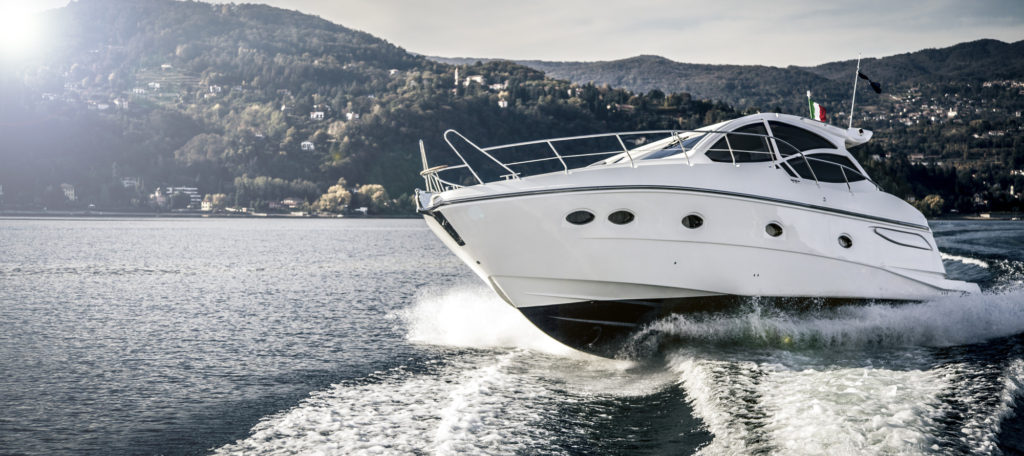
Your boat battery is essential for keeping you afloat when you’re out on the waters. The last thing you want is to be caught without energy while you’re drifting off to sea!
However, the best boat battery charger won’t just charge your boat after a long day at sea. They’ll do so faster, safer, and more reliably so that you can rest easy knowing that your boat will maintain its charge until your next trip.
This is especially important if you use your boat all the time. It’s also worth bearing in mind that the right charger for you will depend on the type of boat and battery you have.
Marine battery types include lead-acid, gel, sealed AGM, and lithium – and there’s an ideal charging profile for each kind.
With all that in mind, let’s discuss how to pick the best boat battery charger for your needs…
How to Find the Best Boat Battery Charger
Selecting the right charger might not be as complicated as you think, even if you don’t know how boat batteries operate. First off, you need to whittle down your options to make sure you get the right fit for your marine battery.
Voltage
The voltage of your battery is perhaps the most crucial aspect to consider for charging. Most modern marine batteries are 12-volt units. However, 24 volt systems are also standard.
If you’re unsure or you need to charge different batteries, you might want to invest in a charger that can apply to batteries with different voltages. Many modern chargers can regulate the voltage to suit different battery types.
How Many Banks Do You Need?
There are several 12V batteries on your boat, and each can be hooked up to your charger if you have enough banks. If you tun a 36V trolling motor, yo9u will need at least a three bank. A 4 bank battery charger will also cover your cranking battery.
Size
The size of your battery charger will likely not be a significant consideration, but it is worth checking the dimensions and weight of your chosen boat battery charger.
Space on a boat is often a premium, and excess weight too can eventually become a problem. You might be surprised by how weighty chargers can be!
A multiple bank charger will often be very heavy, so check the weight before you make a purchase. If you’re looking for onboard batteries specifically, you should also plan the area in which you will stow and use it.
Find the Best Recovery Time
The recovery time describes the speed your batteries recharge at. The best battery chargers will do so within 3-5 hours and put out 15 amps per bank.
Less efficient chargers may range from 6-12 hours. If you intend to go out to sea multiple days in a row, a faster charger is advisable.
Match the Type of Your Battery
If you have an AGM or Gel battery, not all chargers will be compatible. If you ignore this mismatch, it could lead to permanent damage to your marine battery.
AGM and Gel batteries generally require more specialized chargers that can protect and maintain their lifespan. Lead-acid batteries are easier to match but can boil off their flooded cells if they’re overcharged.
Smart Charging
Nowadays, many boat battery chargers offer a degree of smart charging. This means the device boasts processors that can identify the type of battery that needs charging.
They can analyze the battery’s status and adjust the charge requirements to charge the battery safely. This can preserve the lifespan of both your charger and battery and make sure your investments last you longer.
Overcharging a battery risks permanently damaging it. With smart charging, the system will carefully charge the battery but prevent it from overcharging. It does this through the use of multi-stage charging technology.
Additionally, smart chargers can maintain a charge or trickle charge. Some may even adjust to the outside temperature. Usually, a boat battery charger with intelligent charging features LED indicators that display the status.
Portable or Onboard Battery Chargers
You can save money on a battery charger by deciding whether you want an onboard battery charger or a portable charger.
The best option for you depends on the size of the boat. If you have a ship with multiple batteries, an onboard battery charger is usually a good investment.
As its name aptly suggests, you can charge more than one battery at a time with a permanent fixture.
Safety Features
If you invest in a battery charger with inbuilt safety features, you might find the charging process much less complicated. Battery chargers are electrical items, and therefore safety features are in place for both the operator and the charger itself.
Look for elements like inline fuses, reverse polarity protection, and ignition protection. It’s also useful to look for vibration-proof and shock-proof casing with a high waterproof rating.
Decide on Your Budget
The price of battery chargers can vary greatly. The price depends on the number of banks and the extra functionalities the product might offer.
If you’re looking for only a two bank charger without any digital protection, this costs just a fraction of the price of a 3 or 4 bank charger. Precision digital charging and battery monitoring can also lift the price of a charger.
Ready to Pick the Best Boat Battery Charger to Keep You Afloat?
With the impressive variety of boat battery chargers on the market, you’re bound to find one that suits you. We hope this guide helps you pick the best option. For more advice, please feel free to subscribe to our blog to enjoy all our latest content.



